Having reviewed censuses, birth, marriage and death records it’s recommended that historic newspapers are the next step on finding out about ancestors. In my experience this can be hit and miss. Thankfully Charles Henning Swendell (1809 to 1850) was part of a small community and was newsworthy so it’s possible to track his life and get an idea of his character.
There’s no evidence that upon Charles Henning Swendell being convicted of stealing a hat on the 14th of January 1830 that his father William Sewell Swendell wrote to the king asking for clemency. This suggests that William thought that Charles was guilty since in 1825 he had written a letter to the king for his son William. He would do the same again for his son Frederick in 1834. Charles’ conviction for stealing a hat wasn’t his first brush with the law. He’d been found not guilty in 1828 of stealing some bread.
Charles was convicted to seven years transportation. Travelling on the Royal George he arrived in Van Diemen’s Land on the 25th of June 1830 and completed his sentence on the 20th of December 1836. He doesn’t appear to have been a particularly troublesome prisoner as he was given a ticket of leave in Launceston on the 3rd of November 1834.


However, in 1839 he was fined for being drunk and disorderly on the 20th of February and for being drunk on the 11th of March in Launceston.

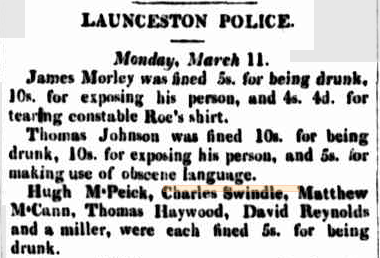
There are no reports of Charles until the 25th of June 1841 when it is reported that while serving as a police constable in Melbourne he has been assaulted.
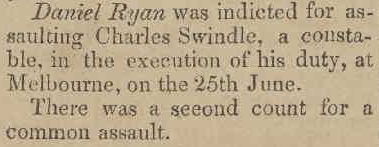
It appears that Charles travelled to Melbourne from Launceston between 1839 and 1841. Melbourne was only founded in 1836 so Charles was one of the early settlers there. In 1840s Australia, many police constables were ex-convicts, as most Europeans there were either convicts or ex-convicts.
In 1847 and 1848 after Charles leaves the police there are stories in local newspapers lamenting the loss of his role as inspector of weights and measures.
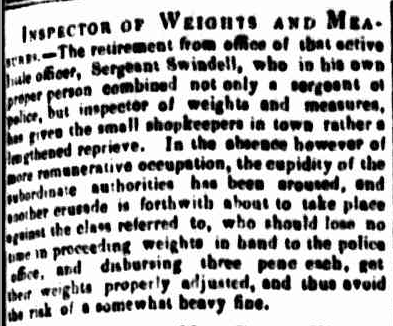 Lamenting the loss of inspector of weights and measures 1847
Lamenting the loss of inspector of weights and measures 1847
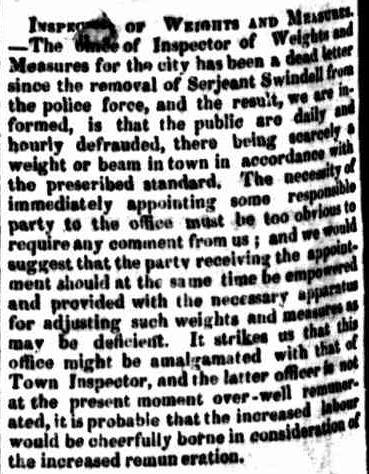 Lamenting the loss of inspector of weights and measures 1848
Lamenting the loss of inspector of weights and measures 1848
So is this a story of redemption whereby a convict becomes an upstanding and important member of society? Unfortunately it would appear not. On the 11th of November 1845 he is mentioned in court proceedings as not being attentive in his duty as a police constable.
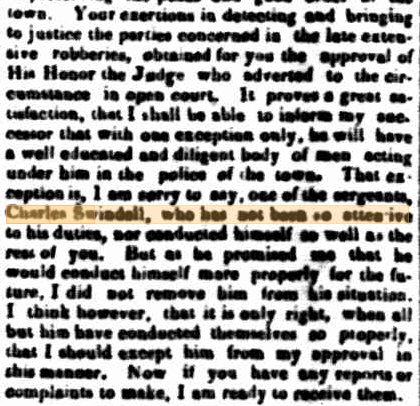
Then on the 12th of February 1847 he is dismissed from the police for being drunk.
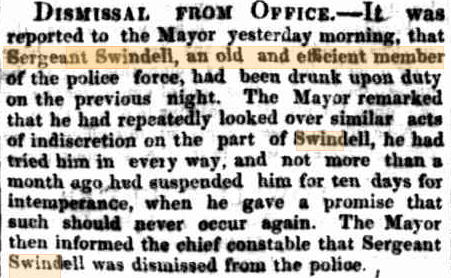
Although the full reasons for his dismissal are not recorded in newspaper reports there is the possibility that the occasion was recorded in The chronicles of early Melbourne, 1835 to 1852 historical, anecdotal and personal by “Garryowen”. “The Tulip” is the chief constable of Melbourne at the time.
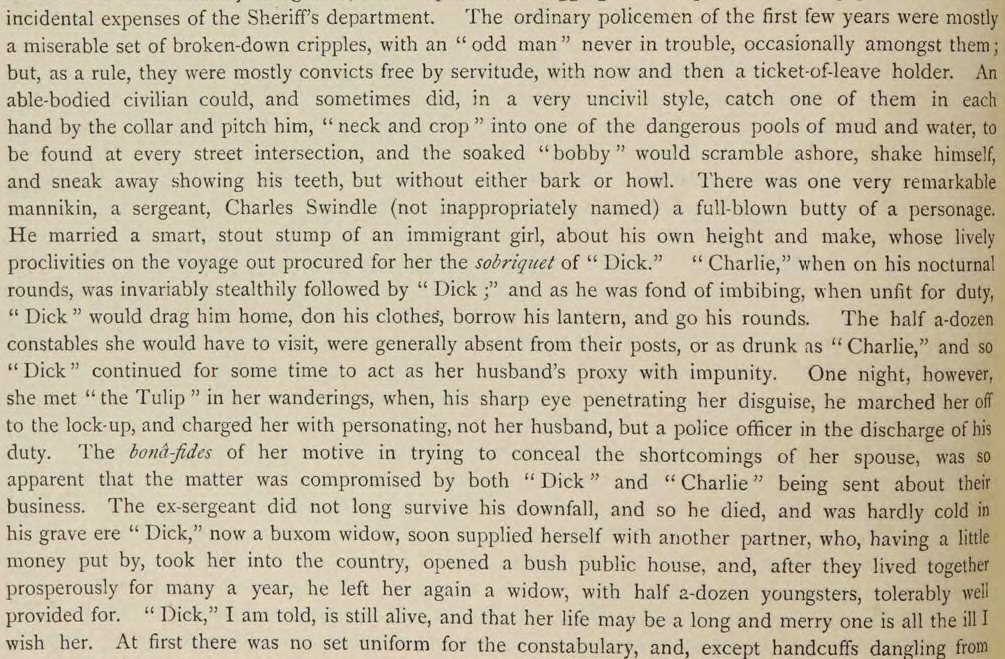
Despite what the article says Charles lived until 1850. Between being dismissed from the police and his death he tried to rejoin the police as a chief constable, worked as a watchman and was involved in a fight.
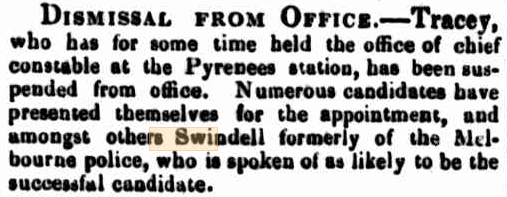 Attempting to rejoin the police
Attempting to rejoin the police
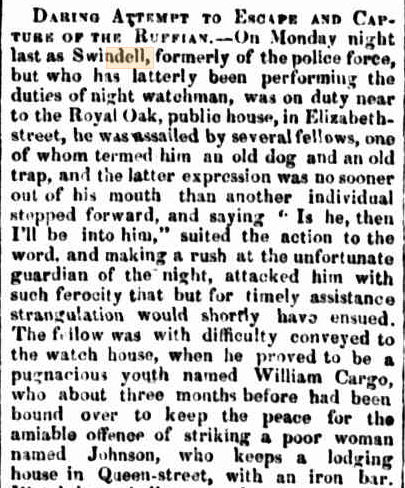 Working as a night watchman
Working as a night watchman
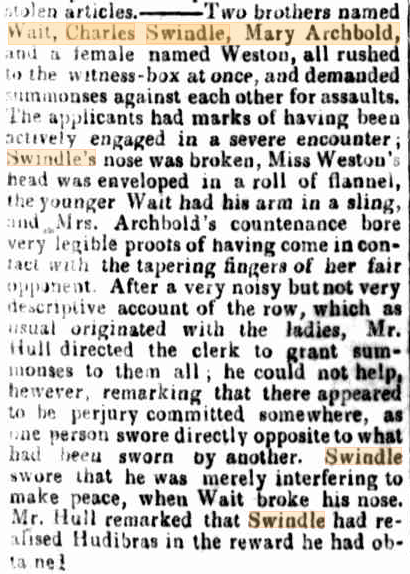 Arguing in court after fighting
Arguing in court after fighting